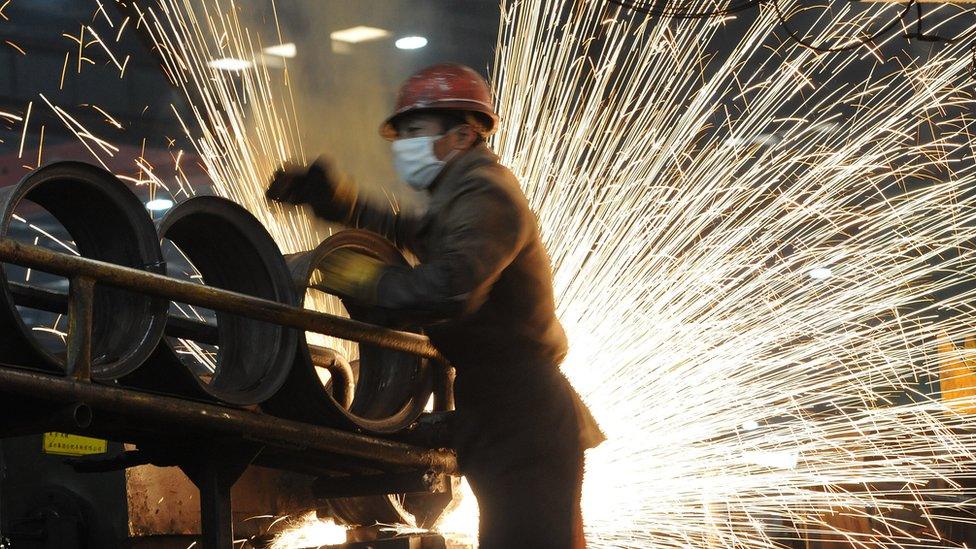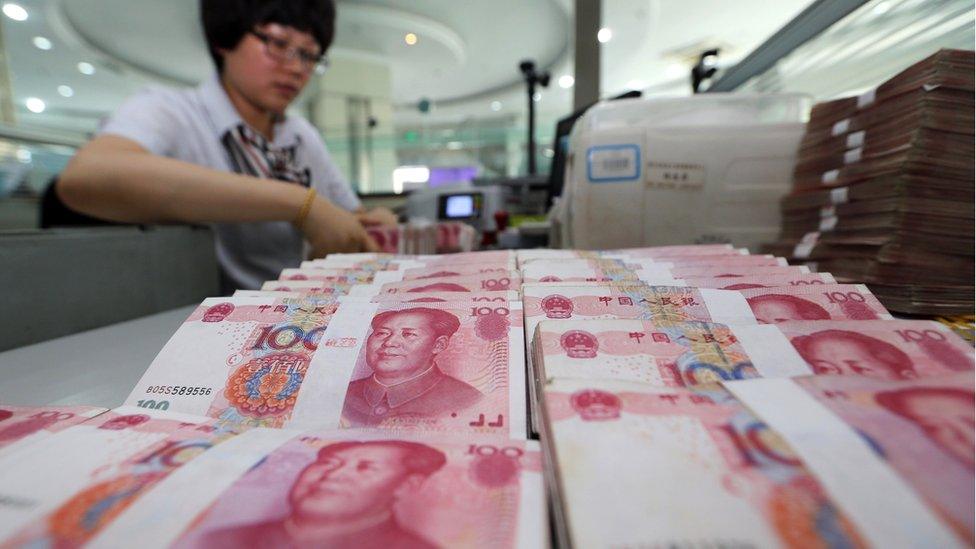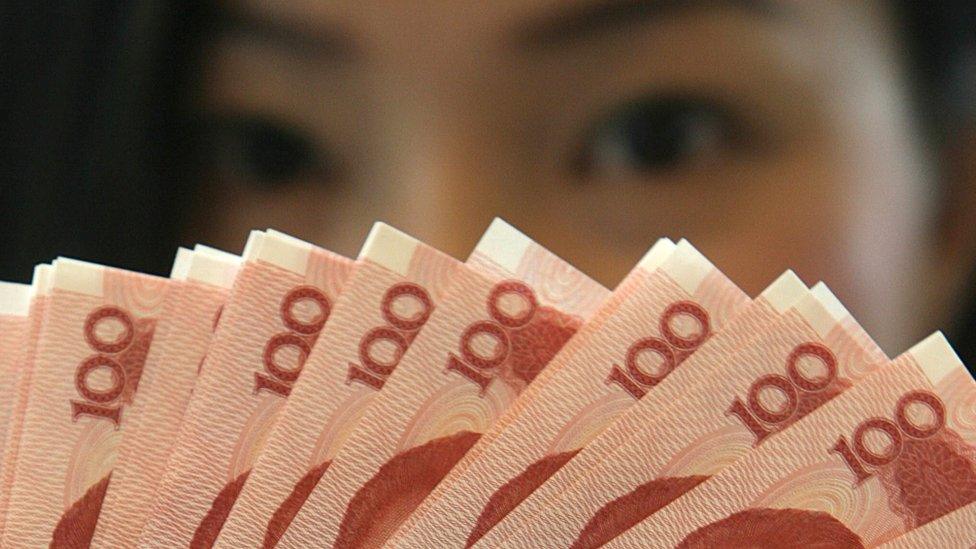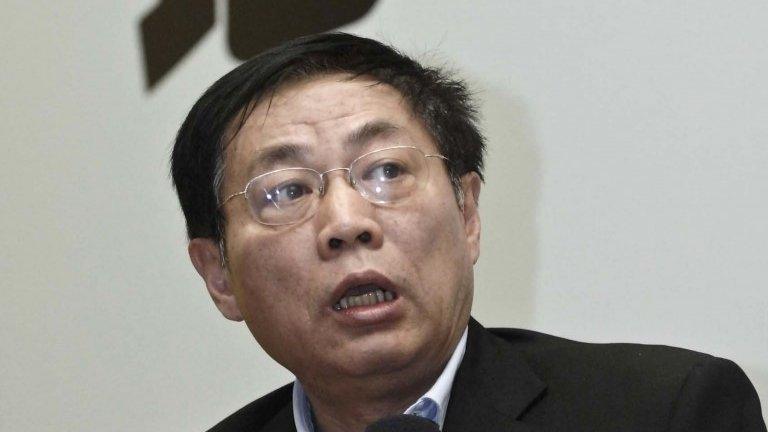Fresh data confirms Chinese economic slowdown
- Published

Fresh data from China has confirmed its economy is continuing to lose steam.
Two major official and private indexes used to gauge the country's manufacturing activity indicate a worsening contraction in the sector.
The bad news comes just after the central bank's latest stimulus measure to boost liquidity.
China's slowing growth has been dragging the global economy as Beijing hopes for a shift towards services and consumption in its domestic market.
Tuesday's government data shows that activity in China's manufacturing sector shrank for the seventh straight month in February.
Coming in below market expectations, the Purchasing Manager's Index (PMI) fell to 49.0, down from 49.4 the previous month.
The index is used as an indicator of factory activity, and any reading below the 50 mark points at a contraction in the sector.
Aside from the government data, the private Caixin-sponsored PMI, which focuses on smaller companies, came in even worse at 48.0 for February, marking the lowest reading in five months.
More stimulus
The disappointing figures were released only one day after the central bank had reduced the so-called reserve rate ratio for banks, which is the amount banks must hold in reserve.
In Beijing's latest attempt to tackle slowing growth, the cut is aimed at boosting liquidity, making it easier for banks to lend money.

Beijing hopes that more liquidity will boost growth
The bank's announcement comes only days before the annual meeting of China's parliament, which hopes to push an economic shift to make the services sector and consumption a stronger driver of the economy.
While the February PMI for the service sector did come in above the 50 threshold it still declined compared to the previous month.
Analysts doubt the extent to which services and domestic consumption can prop up the world's second largest economy as the manufacturing slump is expected to affect people's spending power.
Beijing on Monday said it expects layoffs of 1.8 million workers in the coal and steel industry alone, about 15% of the workforce, to cut down overcapacity.
- Published1 March 2016

- Published26 February 2016

- Published28 February 2016
